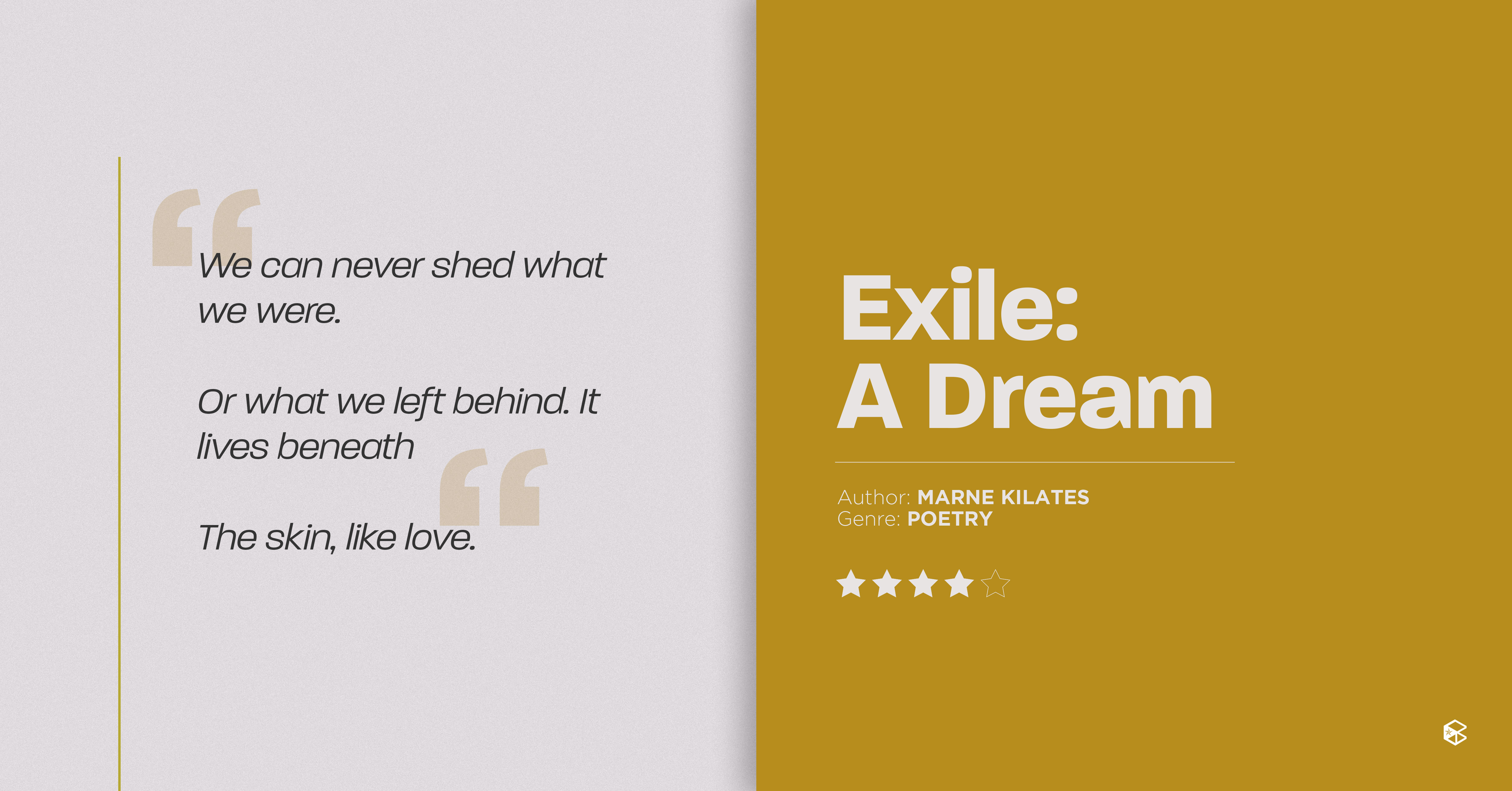Migration, back then until today, is a common occurrence in the Philippines. It cannot be denied how deeply rooted it is in the Filipino culture as it has been turned into a goal to be achieved, passed on from one generation to another. It has oftentimes been equated to success, but the reality often does not turn out to be what has been expected.
Diving into the realities of such an occurrence, Exile: A Dream is a poem written by award-winning Filipino poet Marne Kilates, who was previously named Poet of the Year in the 2013 Nick Joaquin Literary Awards of Philippines. The poem was published in 2007 in his poetry collection book titled Mostly in Monsoon Weather.
In his poem, Kilates highlights the struggles of migrants through the poem’s persona as someone who migrated and left his country. Though the persona migrated like he always wanted, lingering thoughts still remain.
This could be seen in the lines where he asks questions and follows with an answer.
—So are you happy here?
—In the sense that we’ve always
Wanted to be here, yes. But in the sense
That we had to leave everything behind…
Filipinos move to another country most of the time for the repeated reasons of better opportunities and better lives as they leave everything behind—family, friends, etc. However, they would always still long to go back to their roots, to where they came from.
Looking at how the poem was written, the use of this question-answer format was not disruptive like it could have easily been. It did not feel forced and fitted quite nicely, with Kilates having a way of shaping it uniquely but still making it feel striking when read.
We can never shed what we were.
Or what we left behind. It lives beneath
The skin, like love.
Heavily exhibiting a theme of diapora and being away from home, the poem’s use of words emphasizes loneliness and the lack of belongingness, while trying to look for what is familiar to feel at ease. As a migrant with such feelings, the poem starts and ends like a mirror, discussing a rule that explains why achieving this certain dream makes you an exile, someone who cannot return back to their own country. The poem itself displayed a build-up that could easily be followed; the persona’s journey of transitioning as he alluded to the mouth of a labyrinth, a symbolism of his own contemplation-filled path that only has one entrance—which is also the exit.
The first rule is you don’t come back.
The first rule is also the last.
Life keeps going; and for most migrants, they cannot give up easily as they continue to strive for a better life. Perhaps, what draws one into this poem is how the context is cleverly written in the narrative while making use of analogies, as well as how the mood of the poem was consistent as if the one reading could be the persona himself or rather understand where the persona is coming from.
The poem is simple, but the individual details in the lines are what make it great. It does not romanticize—it says it just the way it is. There is no need for grand words, the atmosphere displayed is felt all throughout the piece, and that is what makes it all the more well-written when read.
You can read Exile: A Dream along with Kilates’ other works here.


